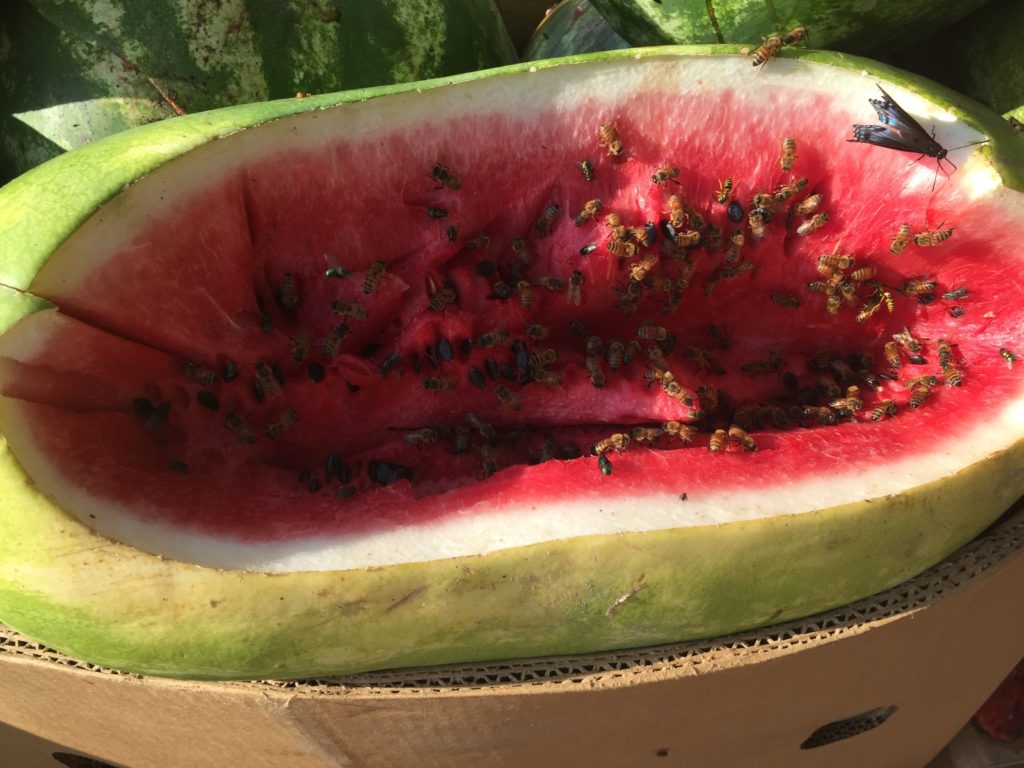People are often surprised to learn that bees don’t have a ready source of food during the summer. The nectar flow around here is only about a month and a half in the spring. After that the dog days of summer take hold and there isn’t much for the bees to work with. Of course we do what we can for them but that is only so much.

However when July gets here, the bees at our farm get an unusual treat. In July, we start getting watermelons from the market. Often the reason we get the watermelons is because they are cracked or broken. And with Spork and I around, there isn’t much chance that a whole watermelon will stay unsampled for long which means you very quickly end up with the picture above. Bees absolutely swarming over the watermelons getting all the juicy goodness that they can. With our barnyard work area within site of the bee hives, it doesn’t take the bees anytime at all to find out we received watermelons and we have buzzing bees everywhere.
For those of us working the produce, this is definitely a hazard because you have to pick up these watermelons which are covered with bees all day. That means sometimes you grab a bee instead of the expected melon and they will zap you immediately. The other day, everyone working received at least one sting and Adam got stung on his last day with us.
However it does mean that our bees get an unusual nectar flow in a time when all the other bees in Wake County are going hungry. I haven’t talked to our bee keeper yet to see if she can compare our hives vs. the regular hives, but I’m sure she’ll let me know if she sees anything unique in the results.
I wonder if watermelon honey is a thing? 🙂
Nope. All good.
I’m considering bee keeping for a hobby.
I live next to a large water melon pasture.
Will the bee’s affect the crop in any bad way.
Watermelon honey is definitely a thing! Watermelon plants don’t produce an enormous amount of nectar, so it takes a big field to make watermelon honey, which reportedly tastes “pink” .?. But how about honey from the fruit itself? Because of watermelon’s high water content (92% vs 20-50% in flower nectar) the bees have to work much harder to evaporate all that excess water out. Honey is considered ripe when it reaches ~18.5% water. Higher than that you start brewing mead. Much lower, you start making rock candy. But as you said Dan, there’s slim pickings for nectar out right now. So I expect they are reveling in the discovery of a nearby watermelon pool. I’ll check the hive weights to see if there’s any appreciable difference of what they are bringing home. Incidentally, any bees that stung someone are not ours, but from some mean feral hive. 🙂